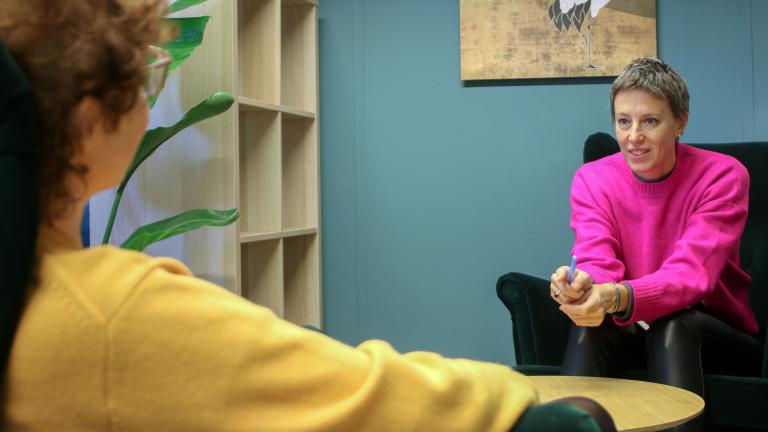Healing the Mind with Connection

Loneliness is a major problem in our society. In fact, loneliness and isolation are even more widespread than smoking, diabetes, and obesity.
That’s according to the U.S. Surgeon General, who is an advocate on this issue. He recommends social connection and “support systems that allow individuals to share their personal experiences and seek emotional support.”
That's where United Way has stepped up, creating healthier communities by providing resources for making social connections and fighting loneliness. Across the world, local United Ways are in increasing access to mental health services, as part of our focus on improving access to health.
In 99% of the US and all across Canada, 211 provides health and social service assistance information and referrals. This 24/7 resource — supported by United Way— helps people find the local resources they need, including mental health support. Meanwhile, 988 crisis counselors provide support for people in suicidal crisis or mental health-related distress in the very moments they need it most.
But what about vulnerable communities around the world? We’re answering that call as well! We know that because the challenges to well-being and social connection look different from community to community, our solutions must also look different.
The problem of loneliness is worsened for those who have to flee their homes. That’s exactly what happened, following the outbreak of war in Ukraine. Some 100,000 refugees fled to the Netherlands. In addition to being disconnected from the homes and communities they’ve known, 22% of refugees also faced mental illness. But congestion in the Dutch healthcare system, language barriers and licensing issues for around 500 Ukrainian mental health professionals, prevented refugees from accessing help.
United Way believes that everyone, everywhere should have the opportunity to thrive — even when their world is crumbling around them. United Way of the Netherlands couldn’t make a way for Ukrainians to return home, but they did the next best thing and brought home to them.
In a novel approach to the refugee mental health crisis, they recruited Ukrainian therapists as “counsellors” and used social media networks such as Telegram to unite those in need with those who could help.
Olena’s story is an example. In late February 2022, her family was awakened by Russian bombardments near their home, just outside Kyiv. The terrifying experience left lasting emotional scars. The family — including two children — was haunted by the sight of Ukrainian anti-aircraft fire intercepting a Russian missile directly above them. Fleeing to the Netherlands, Olena eventually settled in Diemen, where she was able to access Ukrainian psychologists who helped her navigate the overwhelming challenges she faced. Like many other Ukrainian refugees, the counselling that Olena received in her native language became a lifeline, offering solace and guidance as she grappled with the aftermath of the war.
Currently, the program operates in three cities: Hoorn, Amsterdam, and Maastricht, and will be extended to include the municipality of Utrecht in June. Since it began, 90% percent of clients say they’re better able to cope with their circumstances. United Way of the Netherlands has increased the number of therapists available to those fleeing Ukraine, contributed to decongesting mental health services, and expanded services to include displaced communities from Syria, Afghanistan, and Sudan.
Connection to home and community is a powerful defense against loneliness and threats to mental wellbeing. In the U.S. and around the world, we’re working to make sure everyone has access to mental health resources.
If you or someone you know is looking for long-term mental health resources, talking through a problem, or exploring mental health treatment options, don't hesitate to call 211 or click here to find more ways to contact 211 in the U.S. or Canada. All 211 conversations are confidential and can be made anonymously in 180 languages upon request. If you live outside North America, contact your local United Way to find out what’s available in your community.